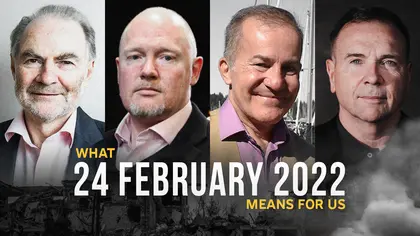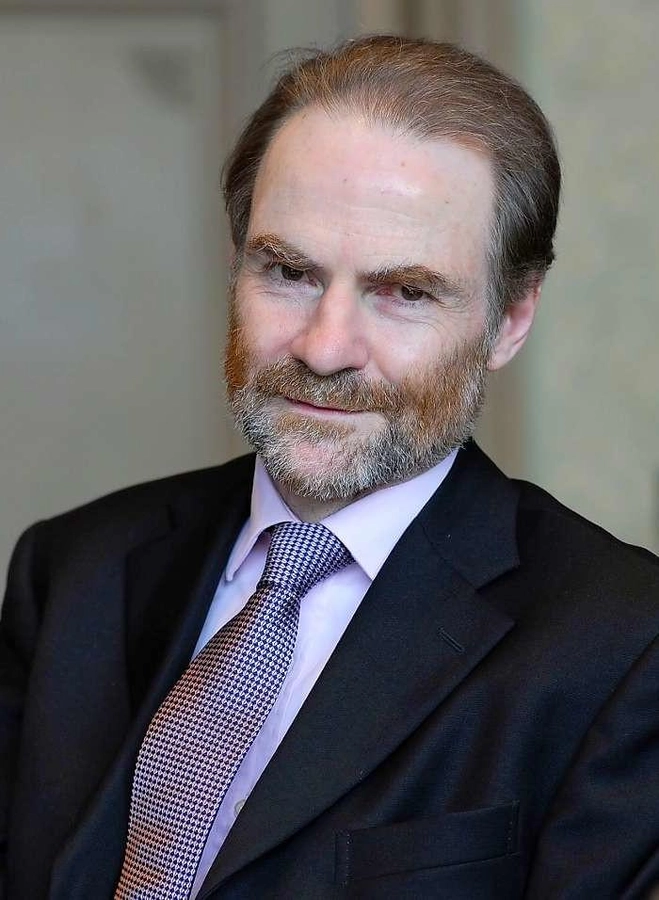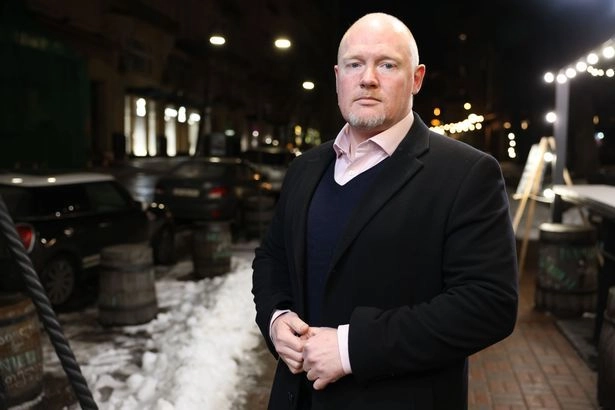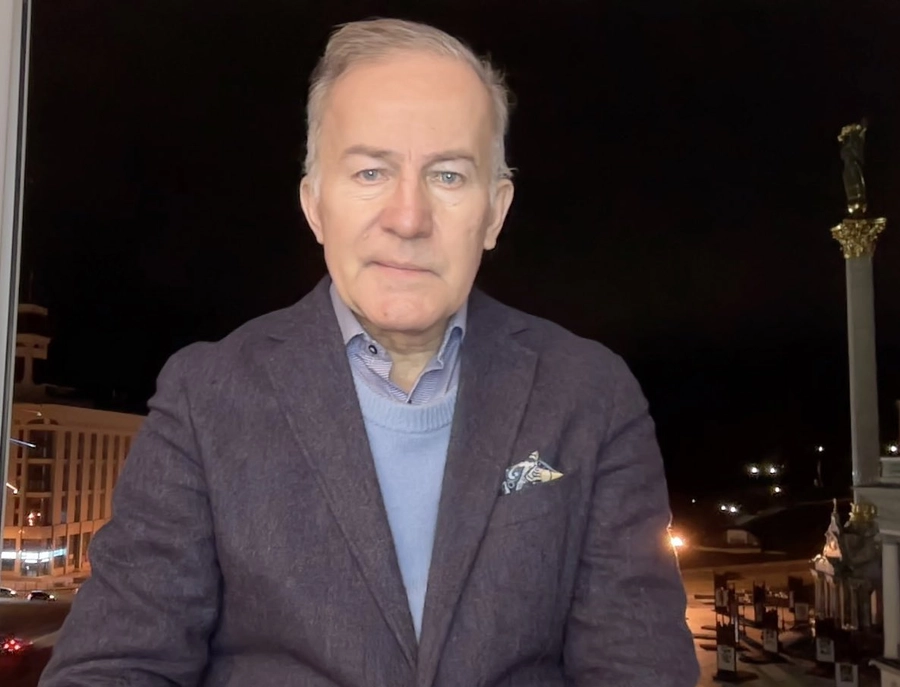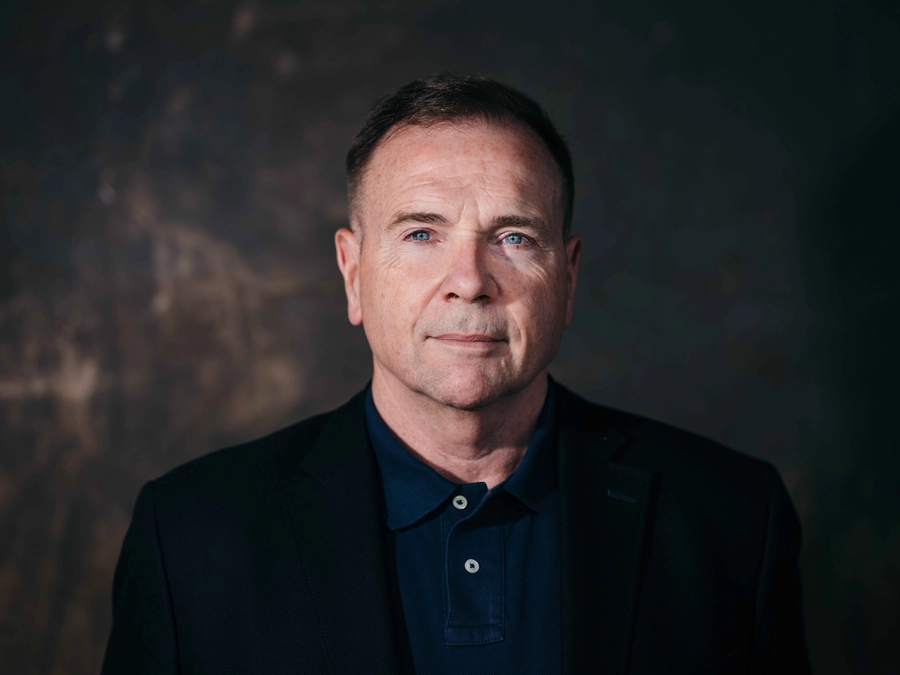From the editors:
In connection with the second anniversary of Russia launching its all-out war against Ukraine, we have invited a number of prominent political, business and military people, analysts and journalists, to share their thoughts on what this somber date means for them and for all of us.
JOIN US ON TELEGRAM
Follow our coverage of the war on the @Kyivpost_official.
To set the scene, here is the first group.
Timothy Garton Ash
In a hundred years’ time, Feb. 24, 2022, will still be recorded as a turning point in European history. It ended what I call the post-Wall period, which began on Nov. 9, 1989, with the fall of the Berlin Wall. And it launched the largest war in Europe since 1945.
I think every day of Ukrainian friends and what they are going through, and I keep the Ukrainian Air Alert app live on my phone to remind me. It pings several times every day and I look at the Air Alert map of Ukraine turning blood red.
We are in the middle of a long war, and such wars have ups and downs. We must not get too dispirited by current reverses. Ukrainian victory is essential not just for Ukraine itself but for the credibility of Europe, the West and democracy in the world. In the long run, it will also be better for Russia.
In order to achieve that, the West needs to be strategically clear about the goal – that Ukraine should win, not just ‘not lose’, the weaselly formulation still used by some Western leaders. And it needs to give Ukraine’s armed forces sufficient ammunition, armored vehicles, planes, long-range missiles and training to achieve that goal.

Trump Makes 90 Day Foreign Aid Freeze – Ukraine Military Support Supposedly Untouched
Beginnings matter, in history as in romance. The three or four years after 1945 shaped the European order for the next 40 years; those after 1989, for the next 30 years. On the outcome of this war will depend, in significant measure, the character of the new period of European history that has now begun.
Timothy Garton Ash (Oxford and Stanford), historian, analyst, and author of Homelands: A Personal History of Europe (Ukrainian edition to be published by Vivat in May).
Peter Dickinson
The full-scale invasion launched by Vladimir Putin two years ago has become the most consequential armed conflict for a generation with truly global implications. Although actual hostilities are currently confined to Ukraine and Russia, this is in many respects a world war that will shape the international environment for decades to come.
Putin’s immediate objective is the destruction of Ukrainian statehood, but it is already clear that if he succeeds, he will go further. Ultimately, he aims to reverse the verdict of 1991 and revive a world order where great powers have spheres of influence and are able to bully their weaker neighbors without consequence.
Other authoritarian regimes such as China, Iran, and North Korea wholeheartedly endorse Russia’s vision and are already providing material support to varying degrees.
Meanwhile, the war has exposed a dangerous lack of resolve throughout the democratic world. While the initial Western response to Russia’s invasion was far stronger and more united than most observers had anticipated, this proved to be a relatively short-lived phenomenon. Western military aid to Ukraine has been subject to endless delays and has been hampered by impractical restrictions that reflect the West’s crippling fear of escalation.
Two years on, many Western leaders still appear to be in denial over the scale of the threat they face and remain reluctant to voice support for a Ukrainian victory. By allowing itself to be intimidated by Russia, the West encourages further Russian aggression.
Unless this changes, there is a very real danger that Russia will at least partially achieve its goals in Ukraine. This will transform the international climate and plunge the whole world into a dangerous new era of instability and insecurity. In a very real sense, Ukraine is fighting for the entire free world.
Peter Dickinson is a veteran Kyiv-based British journalist who is the Editor of the Atlantic Council’s UkraineAlert Service, and publisher of Business Ukraine and Lviv Today.
Michael Bociurkiw
For the first time since Russia’s full-scale invasion even the most battle-hardened of Ukrainian acquaintances are now voicing concern, especially after several barrages of rockets and drones since the new year.
And with an aid package from the U.S. for $61 billion tangled up in political gridlock under the direction of Donald Trump, the mood across Ukraine has turned understandably glum. They’re correct to assume that history will judge US lawmakers harshly should they fail to get the promised aid to Ukraine.
There was a time when security experts speculated that Russia’s stockpile of weapons was running low. But the Kremlin has apparently managed to re-supply and is now reported to be using short-range ballistic missiles in Ukraine produced by its ally, North Korea.
While it’s impossible to put an exact number on Ukrainian war losses, anyone who visits the military portion of the Lychakiv Cemetery in Lviv can see that it’s expanded to almost maximum capacity. One sees the same trend in burial places across Ukraine.
Ultimately though, it could fall to the Ukrainian people themselves to prevent Russian President Vladimir Putin from achieving his goal of fully destroying Ukrainian statehood. When I hear of Ukraine tripling its domestic military production in 2023 and deploying stealth maritime drones to bust the unilateral Russian blockade of the western Black Sea, it gives me hope that, with or without ramped-up western help, Ukraine will beat back Russia.
Michael Bociurkiw is a Canadian leading Global Affairs Analyst, journalist and author.
Ben Hodges
Ten years into this war and two years after the large-scale invasion, the situation for Ukraine is very difficult. But the narrative at the Munich Security Conference was way too gloomy, defeatist.
I remain very optimistic. Russia had every advantage for the last ten years, yet it still only controls one-fifth of Ukrainian territory; the Russian navy and air force are rendered almost inconsequential, Russian land forces have suffered over 500K casualties. No "knock out" capability for either side at this time.
The new Ukrainian Commander, General Oleksander Syrskyi, will have to stabilize the situation this year to buy time for fixing problems and building combat power. The Government and Verkhovna Rada [parliament] must fix its personnel system. Units need replacements and there are 2M women and men of traditional military age. This is a problem for the political leadership to solve...risks undermining Western support if they don’t.
The Armed Forces of Ukraine must use this year to reconstitute worn out units and build new units, train people and units, get better at countering Russian advantage in EW and drones.
2024 is the Year of Industrial Competition...Ukraine and the West can/must win this competition vs Russia. I believe that Russia is actually weak now and we should be applying pressure to their economy and isolating them from their allies. In a 12-round boxing match between two heavy-weights, both fighters are exhausted. But, after nine rounds, one can see that the other is even more tired...and that's when he should really pound away. That will be Ukraine, pounding away on an exhausted, fragile Russia next year.
U.S. Lieutenant General Ben Hodges (retired), former commander, US Army Europe.
You can also highlight the text and press Ctrl + Enter


